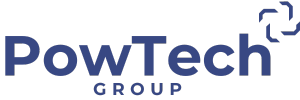About the role
Data Harmonization & Standardization fosters and leverages common, interoperable and high-quality data through the provision of standards, references, and processes across functions & tools.
Duties & Accountabilities
- Business Requirements Analysis:
- Collaborate with stakeholders, including business analysts, project managers, and end-users, to understand their needs, objectives, and pain points.
- Translate these business requirements into technical specifications and solution designs.
- Design and Architecture:
- Design comprehensive functional and solution architectures that address business needs and strategic direction.
- Works on the design and implementation of technical solutions to meet specific business needs.
- Understand business requirements and translate them into technical solutions.
- Create technical documentation related to Infrastructure Architecture, including automation, governance, and building reliability.
- Build prototype models of solutions to validate concepts and approaches.
- Strategic Guidance:
- Provide strategic recommendations and guidance on both business and technological initiatives.
- Identify and select appropriate technologies to achieve desired outcomes.
- Communication and Collaboration:
- Develop strategies and implement tools to optimize communication and collaboration with internal clients, ensuring clarity and efficiency.
- Investigate the best solution (cSuite, AppSpace, Simpplr) for communication and exchange with the Business.
- Regularly engage with internal colleagues to support definition and validation processes.
- External Partnerships:
- Act as the primary liaison with external implementation partners, ensuring clear communication and alignment throughout the project lifecycle.
- Quality Assurance:
- Oversee and execute testing activities, ensuring the quality and accuracy of solutions before validation and deployment.
- Develop Testing and Quality Assurance Plans (To Be Confirmed).
- Business Process Definition:
- Define flexible and generic business processes for managing reference data.
- System Integration:
- Analyze and manage integrations with external systems, ensuring seamless connectivity and functionality.
- Jira: Initial setup of Epics and User Stories
- Risk Assessment and Mitigation:
- Identify potential technical risks, challenges, and dependencies early in the project.
Develop mitigation strategies to minimize these risks and ensure project success.
- Identify potential technical risks, challenges, and dependencies early in the project.
- Ensuring Compliance, Security, and Scalability:
- Design solutions that adhere to industry standards, regulatory requirements, security best practices, and non-functional requirements like scalability, availability, and maintainability.
- Documentation and Transition:
- Own the Solution Architecture Document starting from version 2.1 onwards.
- Prepare Training and Support Documentation.
- Develop a Transition Plan
Requirements
- Deep understanding of various technologies, including software, hardware, and network systems.
- Knowledge of different architectural patterns and frameworks (e.g., microservices, SOA, event-driven architecture).
- Expertise in cloud computing platforms (e.g., AWS, Azure, Google Cloud).
- Understanding of database technologies (SQL, NoSQL).
- Knowledge of integration patterns and technologies (APIs, messaging queues).
- Familiarity with DevOps principles and practices.
- Strong understanding of security principles and best practices.
- Ability to analyze complex business requirements and technical challenges.
- Strong critical thinking and problem-solving capabilities to design effective and efficient solutions.
- Ability to provide technical leadership and mentorship to development teams.
- Experience in Project Management skills, including planning, organization, and risk management.
- Ability to influence and guide decision-making.
- Understanding of financial aspects like cost estimation and ROI.
- Willingness to learn new technologies and adapt to changing environments.
- Proactive in staying updated with industry trends and advancements.
- Able to work on EMEA time zones.
- Very good written and verbal communication skills with the ability to present technical details to a non- technical audience, as well as interpersonal skills, focus on end-user value delivery. Fluent in English.

